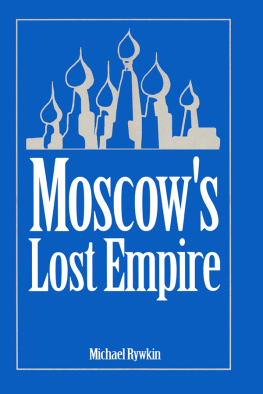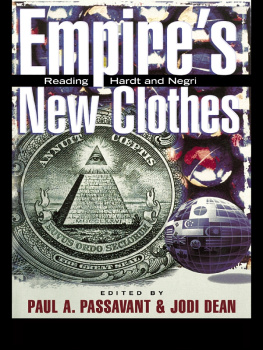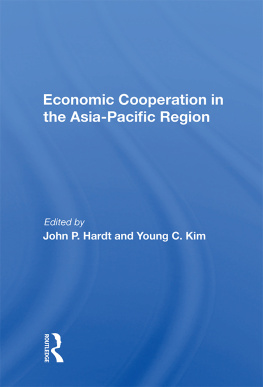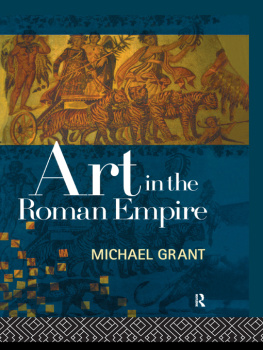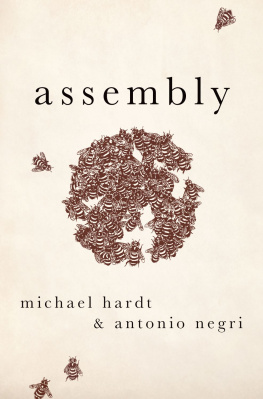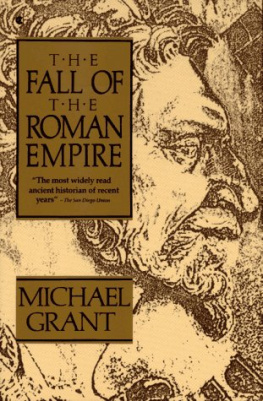Michael Hardt - Empire
Here you can read online Michael Hardt - Empire full text of the book (entire story) in english for free. Download pdf and epub, get meaning, cover and reviews about this ebook. year: 2000, publisher: Harvard University Press, genre: Politics. Description of the work, (preface) as well as reviews are available. Best literature library LitArk.com created for fans of good reading and offers a wide selection of genres:
Romance novel
Science fiction
Adventure
Detective
Science
History
Home and family
Prose
Art
Politics
Computer
Non-fiction
Religion
Business
Children
Humor
Choose a favorite category and find really read worthwhile books. Enjoy immersion in the world of imagination, feel the emotions of the characters or learn something new for yourself, make an fascinating discovery.

- Book:Empire
- Author:
- Publisher:Harvard University Press
- Genre:
- Year:2000
- Rating:3 / 5
- Favourites:Add to favourites
- Your mark:
- 60
- 1
- 2
- 3
- 4
- 5
Empire: summary, description and annotation
We offer to read an annotation, description, summary or preface (depends on what the author of the book "Empire" wrote himself). If you haven't found the necessary information about the book — write in the comments, we will try to find it.
Empire — read online for free the complete book (whole text) full work
Below is the text of the book, divided by pages. System saving the place of the last page read, allows you to conveniently read the book "Empire" online for free, without having to search again every time where you left off. Put a bookmark, and you can go to the page where you finished reading at any time.
Font size:
Interval:
Bookmark:
Every tool is a weapon if you hold it right.
Ani DiFranco
Men fight and lose the battle, and the thing that they fought for comes about in spite of their defeat, and then it turns out not to be what they meant, and other men have to fight for what they meant under another name.
William Morris
ACKNOWLEDGMENTS
We would like to thank the friends and colleagues who read parts of this manuscript and from whose comments we benefited: Robert Adelman, tienne Balibar, Denis Berger, Yann Moulier Boutang, Tom Conley, Arif Dirlik, Luciano Ferrari-Bravo, David Harvey, Fred Jameson, Rebecca Karl, Wahneema Lubiano, Saree Makdisi, Christian Marazzi, Valentin Mudimbe, Judith Revel, Ken Surin, Christine Thorsteinsson, Jean-Marie Vincent, Paolo Virno, Lindsay Waters, and Kathi Weeks.
Empire is materializing before our very eyes. Over the past several decades, as colonial regimes were overthrown and then precipitously after the Soviet barriers to the capitalist world market finally collapsed, we have witnessed an irresistible and irreversible globalization of economic and cultural exchanges.
Along with the global market and global circuits of production has emerged a global order, a new logic and structure of rule-in short, a new form of sovereignty. Empire is the political subject that effectively regulates these global exchanges, the sovereign power that governs the world.
Many argue that the globalization of capitalist production and exchange means that economic relations have become more autonomous from political controls, and consequently that political sovereignty has declined. Some celebrate this new era as the liberation of the capitalist economy from the restrictions and distortions that political forces have imposed on it; others lament it as the closing of the institutional channels through which workers and citizens can influence or contest the cold logic of capitalist profit. It is certainly true that, in step with the processes of globalization, the sovereignty of nationstates, while still effective, has progressively declined. The primary factors of production and exchange-money, technology, people, and goods-move with increasing ease across national boundaries; hence the nationstate has less and less power to regulate these flows and impose its authority over the economy.
Even the most dominant nationstates should no longer be thought of as supreme and sovereign authorities, either outside or even within their own borders. The decline in sovereignty of nationstates, however, does not mean that sovereignty as such has declined.[1]
Throughout the contemporary transformations, political controls, state functions, and regulatory mechanisms have continued to rule the realm of Economic and social production and exchange. Our basic hypothesis is that sovereignty has taken a new form, composed of a series of national and supranational organisms united under a single logic of rule. This new global form of sovereignty is what we call Empire.
The declining sovereignty of nationstates and their increasing inability to regulate economic and cultural exchanges is in fact one of the primary symptoms of the coming of Empire. The sovereignty of the nationstate was the cornerstone of the imperialisms that European powers constructed throughout the modern era. By Empire, however, we understand something altogether different from imperialism. The boundaries defined by the modern system of nationstates were fundamental to European colonialism and economic expansion: the territorial boundaries of the nation delimited the center of power from which rule was exerted over external foreign territories through a system of channels and barriers that alternately facilitated and obstructed the flows of production and circulation. Imperialism was really an extension of the sovereignty of the European nationstates beyond their own boundaries.
Eventually nearly all the worlds territories could be parceled out and the entire world map could be coded in European colors: red for British territory, blue for French, green for Portuguese, and so forth. Wherever modern sovereignty took root, it constructed a Leviathan that overarched its social domain and imposed hierarchical territorial boundaries, both to police the purity of its own identity and to exclude all that was other.
The passage to Empire emerges from the twilight of modern sovereignty. In contrast to imperialism, Empire establishes no territorial center of power and does not rely on fixed boundaries or barriers. It is a decentered and deterritorializing apparatus of rule that progressively incorporates the entire global realm within its open, expanding frontiers. Empire manages hybrid identities, flexible hierarchies, and plural exchanges through modulating networks of command. The distinct national colors of the imperialist map of the world have merged and blended in the imperial global rainbow. The transformation of the modern imperialist geography of the globe and the realization of the world market signal a passage within the capitalist mode of production. Most significant, the spatial divisions of the three Worlds (First, Second, and Third) have been scrambled so that we continually find the First World in the Third, the Third in the First, and the Second almost nowhere at all. Capital seems to be faced with a smooth world-or really, a world defined by new and complex regimes of differentiation and homogenization, deterritorialization and reterritorialization. The construction of the paths and limits of these new global flows has been accompanied by a transformation of the dominant productive processes themselves, with the result that the role of industrial factory labor has been reduced and priority given instead to communicative, cooperative, and affective labor. In the postmodernization of the global economy, the creation of wealth tends ever more toward what we will call biopolitical production, the production of social life itself, in which the economic, the political, and the cultural increasingly overlap and invest one another.
Many locate the ultimate authority that rules over the processes of globalization and the new world order in the United States. Proponents praise the United States as the world leader and sole superpower, and detractors denounce it as an imperialist oppressor. Both these views rest on the assumption that the United States has simply donned the mantle of global power that the European nations have now let fall. If the nineteenth century was a British century, then the twentieth century has been an American century; or really, if modernity was European, then postmodernity is American. The most damning charge critics can level, then, is that the United States is repeating the practices of old European imperialists, while proponents celebrate the United States as a more efficient and more benevolent world leader, getting right what the Europeans got wrong. Our basic hypothesis, however, that a new imperial form of sovereignty has emerged, contradicts both these views. The United States does not, and indeed no nationstate can today, form the center of an imperialist project. Imperialism is over. No nation will be world leader in the way modern European nations were.
The United States does indeed occupy a privileged position in Empire, but this privilege derives not from its similarities to the old European imperialist powers, but from its differences. These differences can be recognized most clearly by focusing on the properly imperial (not imperialist) foundations of the United States constitution, where by constitution we mean both the formal constitution, the written document along with its various amendments and legal apparatuses, and the material constitution, that is, the continuous formation and reformation of the composition of social forces. Thomas Jefferson, the authors of the Federalist, and the other ideological founders of the United States were all inspired by the ancient imperial model; they believed they were creating on the other side of the Atlantic a new Empire with open, expanding frontiers, where power would be effectively distributed in networks. This imperial idea has survived and matured throughout the history of the United States constitution and has emerged now on a global scale in its fully realized form.
Font size:
Interval:
Bookmark:
Similar books «Empire»
Look at similar books to Empire. We have selected literature similar in name and meaning in the hope of providing readers with more options to find new, interesting, not yet read works.
Discussion, reviews of the book Empire and just readers' own opinions. Leave your comments, write what you think about the work, its meaning or the main characters. Specify what exactly you liked and what you didn't like, and why you think so.


